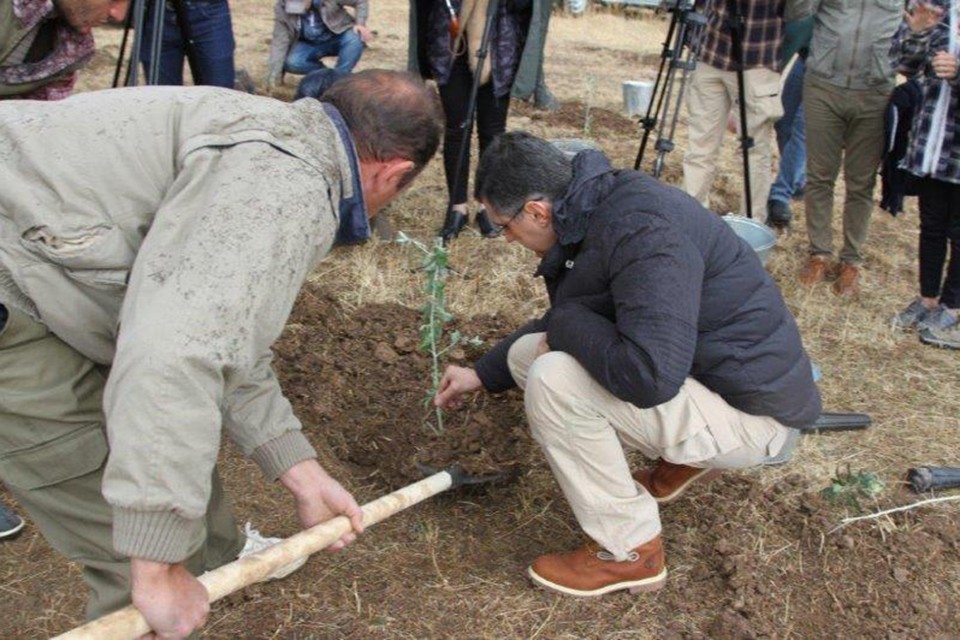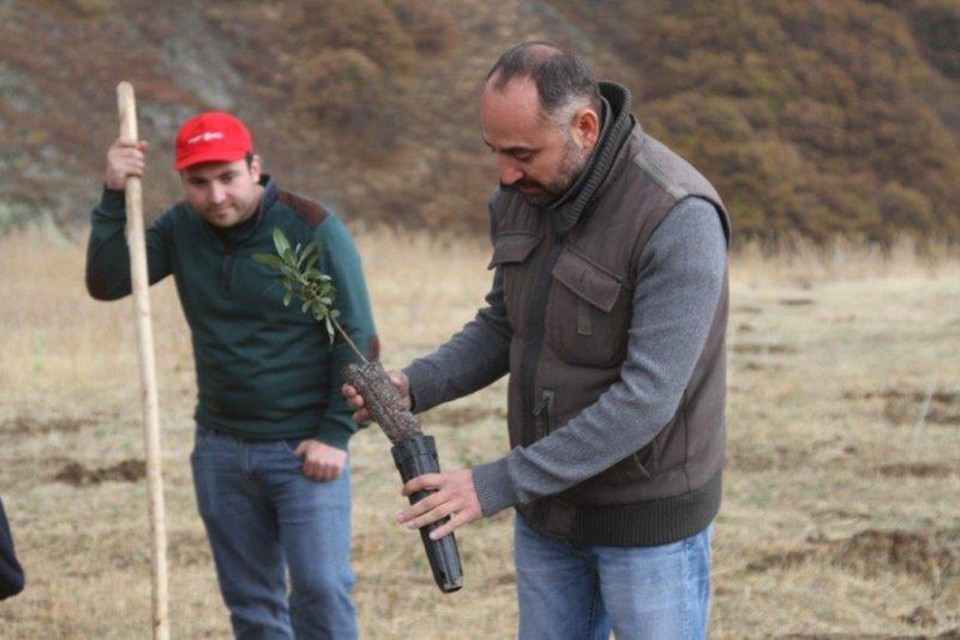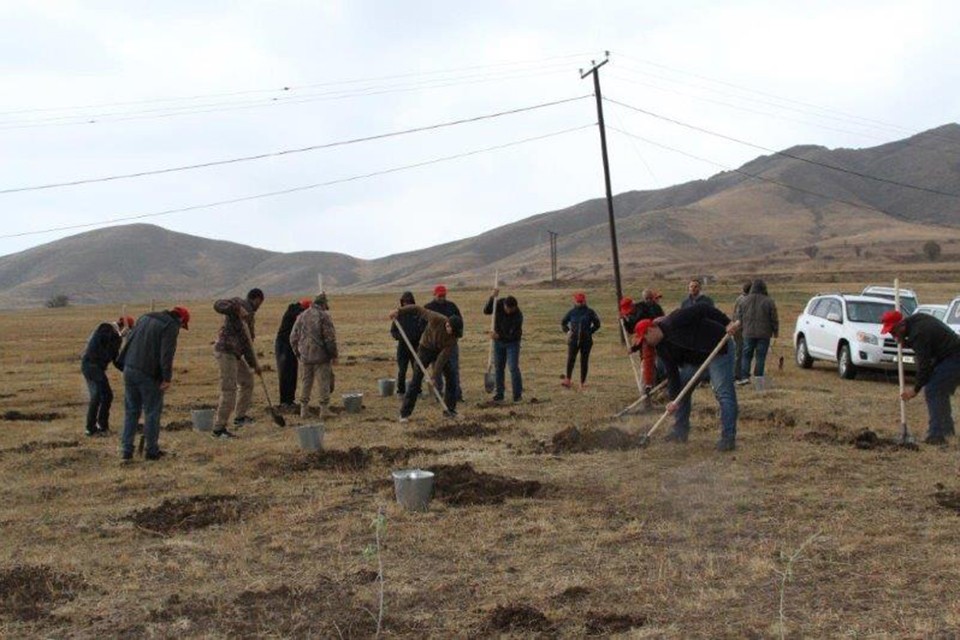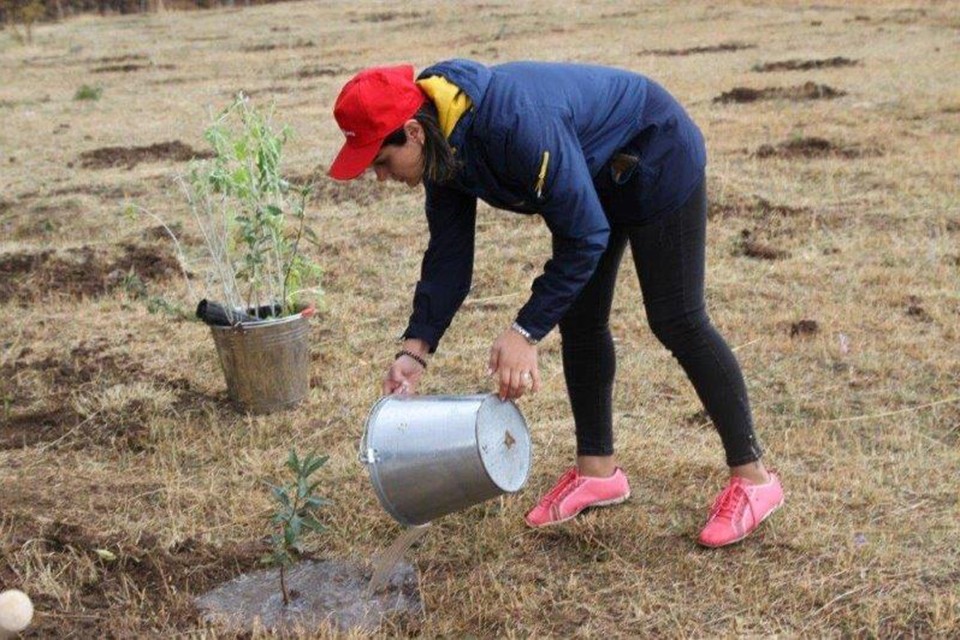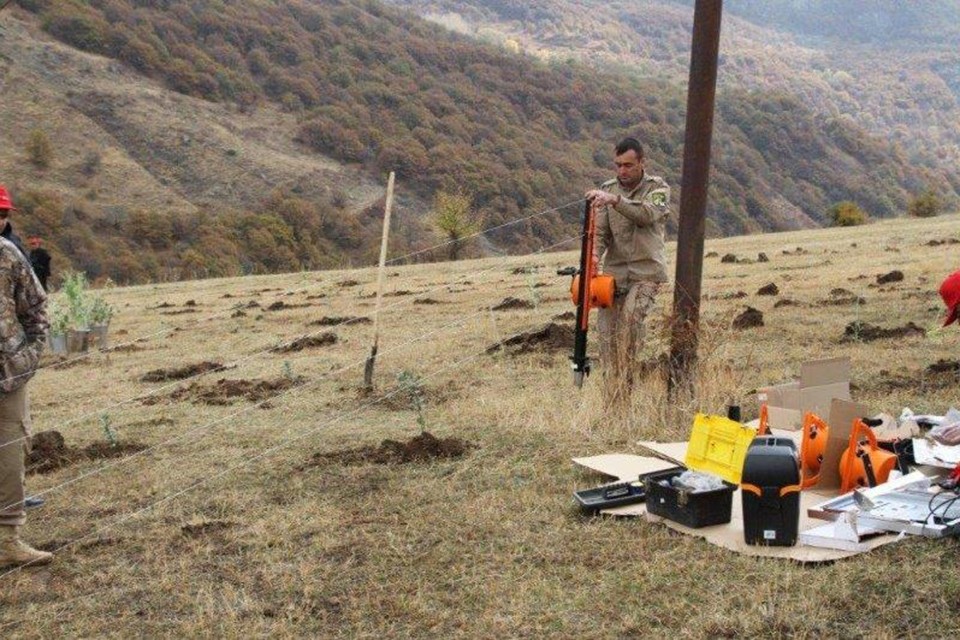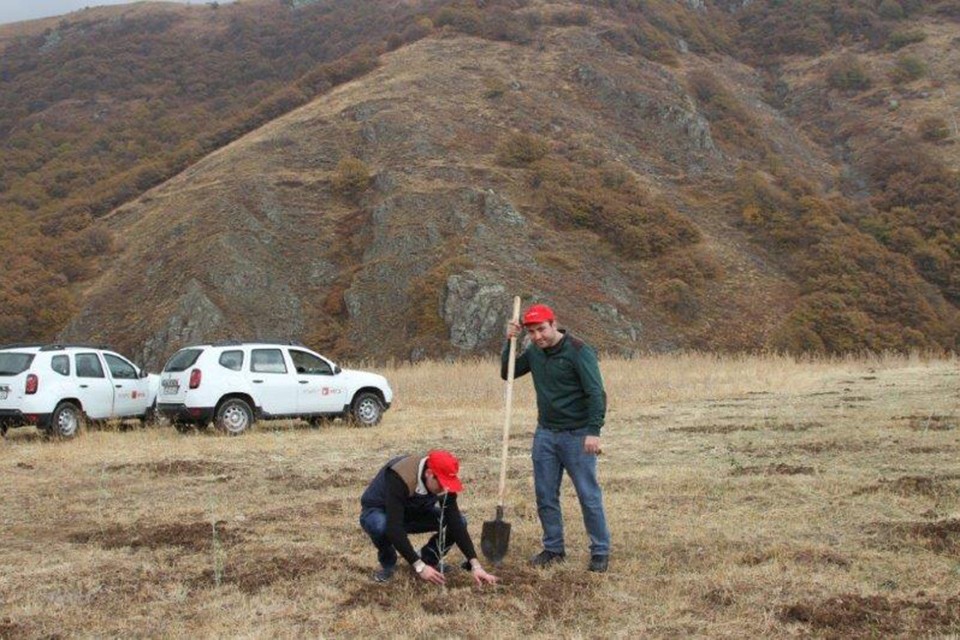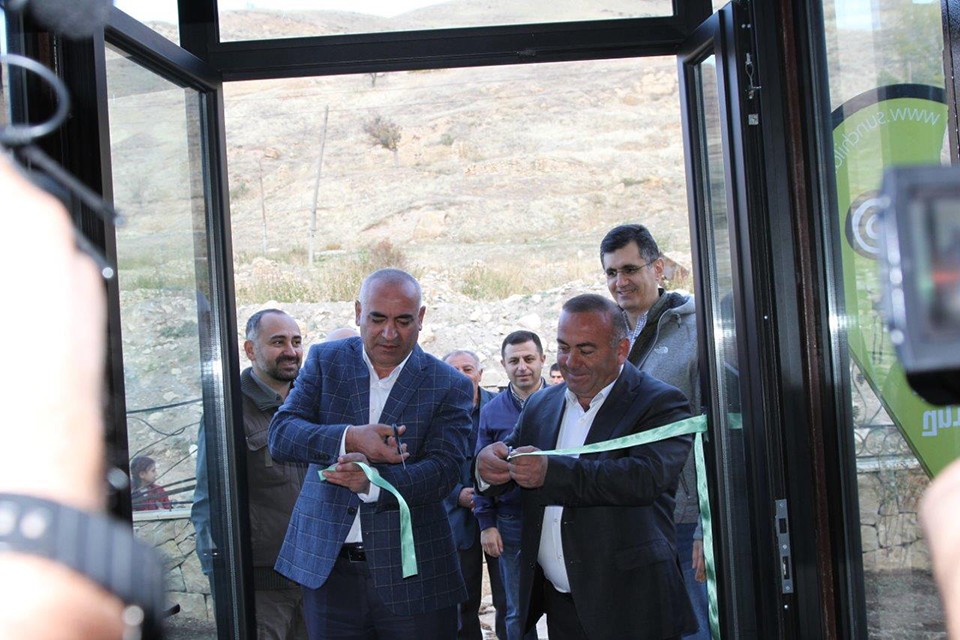16:52 | 31.10.19 | News | 10859
Native wild tree species are planted in Vardahovit with VivaCell-MTS support
With the efforts of VivaCell-MTS and the Foundation for the Preservation of Wildlife and Cultural Assets, important and serious environmental processes have been recorded in different regions of Armenia for over 15 years. This time the partners organized a tree planting in Vardahovit, Vayots Dzor region, to restore the degraded forest area. In order to make further seedling care more reliable, they have installed safe, portable electric fences.
The tree planting was implemented within the framework of the “Developing Forest Landscape Restoration (FLR) on a basis of Caucasus Wildlife Refuge area” project launched by FPWC several years ago. Over 15 000 tree seedlings are planned to be planted by the end of 2019 in Ararat and Vayots Dzor regions.
Three native wild tree species were planted (wild almond, wild pear and oleaster), which are grown in a completely new and experimental way for Armenia, which allows to have healthy tree seedling from the seeds gathered from local forests. The selection of these tree species is conditioned by the specificity to the area. By planting wild food trees reforestation also contributes to the resolution of the "human-wildlife" conflict, that is, providing sufficient food for wildlife in forest areas to avoid their entrance in populated areas of communities.
“I have lost the count of trees I have planted; but definitely, life is about devotion.If we want to live in a healthy, beautiful, clean, and safe environment, we shall be more than just consumers, and shall have our own contribution. And I don’t mean just financial aspects. Care and attention, diligence and consistency are important, too. Where there is unity on matters of value results become more tangible. I am happy to state our teams and stuff members have been guided by these principles for quite a while, and they are role models for young people. Take care of the environment: it is immensely important,” VivaCell-MTS General Manager Ralph Yirikian said.
Within the framework of the above mentioned program an innovative nursery was established, where the seedlings are grown from seed and by following strict and clear requirements of the growing process all year round, viable, healthy trees are grown able to withstand the climatic conditions of the given habitat. This technology was highly valued and considered successful by the US Forest Service and Anthony Davis, Dean of the Forestry University of Oregon. This year the FPWC reached an agreement with Mr. Davis to launch a program in 2020 to start growing IUCN tree species, which are hard to grow in natural conditions.

17:29 | 24.09.25 | Articles
Jacopo Losso on Cross-Border Investments and Why Armenia Attracts Angels

